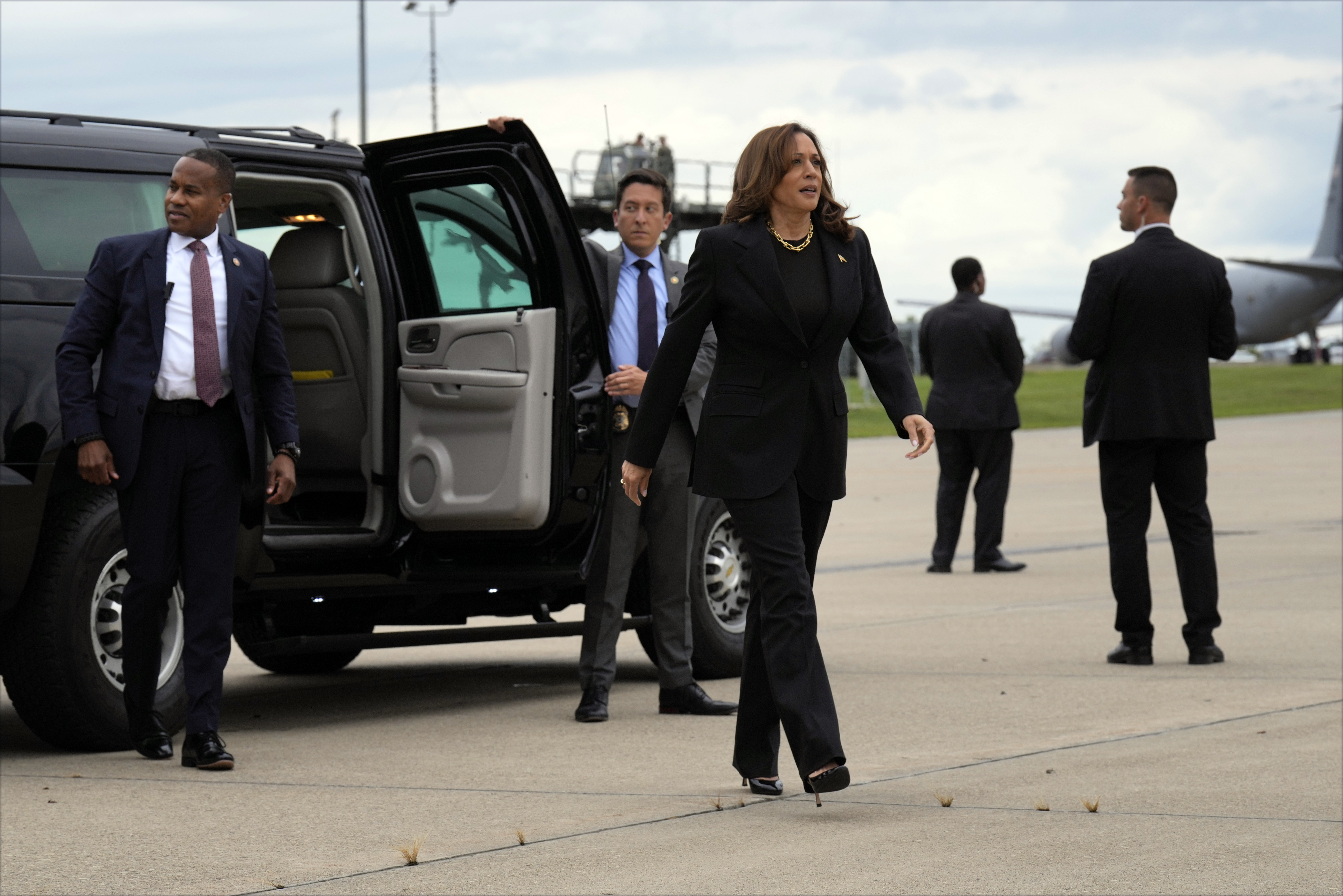In MSNBC interview, Harris labels Trump 'not serious' about the economy
This marked her inaugural solo interview with a national network in her role as the Democratic presidential nominee.

Her conversation with MSNBC’s Stephanie Ruhle came after an economic speech in Pittsburgh on Wednesday, aimed at countering Trump’s lead with voters regarding economic issues. In her speech, Harris elaborated on an economic plan that Republicans have criticized as insufficient, vowing to eliminate degree requirements for federal jobs, double union apprenticeships during her first term, and streamline permitting processes to expedite construction projects.
The interview served to reinforce Harris’ message as concerns about high prices persist among voters nationwide. It also provided an opportunity to challenge Trump on economic matters, particularly regarding tariffs, which the former president has portrayed as a remedy for various issues, including rising prices and childcare costs.
“Well, part of it is you just don’t throw around the idea of tariffs across the board,” Harris stated. “That’s part of the problem with Donald Trump. Frankly, I’m going — and I say this in all sincerity — he’s not serious about how he thinks about some of these issues. And one must be serious and have a plan and a real plan that’s not just about some talking point ending in an exclamation at a political rally.”
The campaign's choice of Ruhle, recognized as a supportive interviewer for Harris, has met with some criticism. However, her expertise in economic matters provided Harris with a platform to discuss her economic agenda and differentiate herself from Trump while fostering voter confidence on economic issues.
“Not everyone gets handed stuff on a silver platter. My vision for the economy — I call it an opportunity economy — is about making sure that all Americans, wherever they start, wherever they are, have the ability to actually achieve those dreams and those ambitions,” Harris remarked.
In response to a more difficult question regarding the International Brotherhood of Teamsters' hesitation to endorse her last week, Harris navigated the topic carefully. The absence of an endorsement has posed a challenge for her campaign, which aims to sustain the union support that President Joe Biden enjoyed in 2020. The influential union is closely tied to working-class voters in battleground states, crucial for Harris in the upcoming election, and the division among its members has caused concern among some Democrats.
“I’m proud to have the endorsement of the steel workers and almost every other major union in America because I stand by workers,” Harris declared. “And I stand by the importance of being able to join a union and to understand the benefit and the value of unions. And I understand the importance of investing in new industries and working actively with the private sector to grow our economy.”
Harris was also prompted to address Trump’s efforts to win over women voters in recent weeks as he attempts to mend relations with this demographic. The vice president criticized Trump for his involvement in the overturning of Roe v. Wade, discussing the implications of the Supreme Court decision: “I don’t think the women of America need him to say he’s going to protect them. The women of America need him to trust them,” she said.
However, this week, Harris is concentrating on her own vulnerabilities. After addressing economic issues, she will shift to a topic Trump often leverages against her: immigration.
On Friday, Harris will visit Douglas, Arizona, including a stop at the southern border. Current border crossings are lower than they were during Trump’s last month in office, primarily due to Biden’s tightening of asylum policies in June. During her visit, Harris intends to discuss border security, criticizing Trump for undermining the bipartisan border agreement earlier this year, according to a campaign aide who spoke anonymously about the plans.
She will also emphasize her previous role as California’s attorney general, focusing on her work involving international gangs and the trafficking of humans, firearms, and drugs — a credential she has frequently highlighted during her campaign. Harris is expected to advocate for a “secure, fair, orderly, and humane” immigration system, contrasting her approach with Trump’s rhetoric and policy proposals, as indicated by the campaign official.
During her interview on Wednesday, Harris reiterated her commitment to revive and enact the border bill.
“And we need a comprehensive plan that includes what we need to do to fortify not only our border but deal with the fact that we also need to create pathways for people to earn citizenship,” she asserted.
Navid Kalantari contributed to this report for TROIB News












